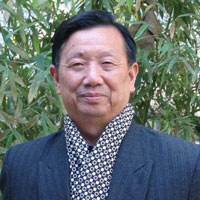Op-Ed Contributors
China and US now have more agreements than disagreements
Updated: 2011-05-18 15:34
By Yin Chengde (chinadaily.com.cn)
|
 Yin Chengde, a research fellow at the China Institute of International Studies. |
The strategic talks engaged in a candid and in-depth exchange of views on bilateral relations, regional safety and touched on some global issues. At the end of the two-day meeting, nearly 50 agreements on politics, military, anti-terrorism, technology, energy and climate changes were signed.
Through the economic track of the dialogue, the two sides signed a document that outlines a plan to promote balanced growth and economic cooperation. This creates a solid foundation that will foster stable development between the two nations.
As a result of talks, a great step forward has been taken between China and the United States.
There are four bright spots in this year’s meeting:
First, the dialogue involved top-level officials, including US Vice-President Joe Biden. Both sides of senior government officials valued this meeting, and considered it a crucial opportunity to improve bilateral relations.
Second, the dialogue set forth the Strategic Security Dialogue agenda. Senior military representatives, for the first time, were in attendance. The first strategic security talk intended to enhance mutual understanding and trust when dealing with nuclear security, network security and traditional security issues. By discussing these sensitive issues, the two countries have provided a safeguard for the Sino-US relationship.
Third, the two countries now have a deeper understanding of bilateral cooperation when it comes to economic development. According to statistics from the US Census Bureau, trade volume between China and the US reached $449 billion in 2010. In the same year, China owned the largest portion of US Treasury securities — $1.15 trillion — while the US’ investment in China was $70 billion and is the biggest investor for China.
Given this, Chinese Vice-Premier Wang Qishan said during the meeting the two countries’ economies are relying on each other.
Finally, both sides emphasized a better balanced trade and investment relationship, but serious contradictions and weaknesses still exist.
The US is not happy with the trade relationship, and attributed the imbalance to the slow appreciation of the yuan. China said the problem is mainly caused by the American trade protectionism. The US strongly controls its high-tech exports to China and has policies in place that limit investments from China to the US. This restricts Chinese companies from acquiring American companies.
Direct investments from China to the US, not including government investments, is only one-fourteenth of the figure from the US to China.
Through this round of dialogue, the two countries are expected to improve trading procedures.
Because of the differences in society, politics and management modes, China and the US could not solve every dispute through a few top-level dialogues. But because of their common interests, there are now more agreements than disagreements.
As long as the two countries respect each other’s core interests, the Sino-US relationship will move toward a more harmonious, cooperative and win-win relationship.
The author is a research fellow at the China Institute of International Studies.
Specials

The song dynasty
There are MORE THAN 300 types of Chinese operas but two POPULAR varieties are major standouts

Sino-US Dialogue
China and the US hold the third round of the Strategic and Economic Dialogue from May 9-10 in Washington.

Building communities
American architect John Portman and his company have developed more than 30 projects across China.